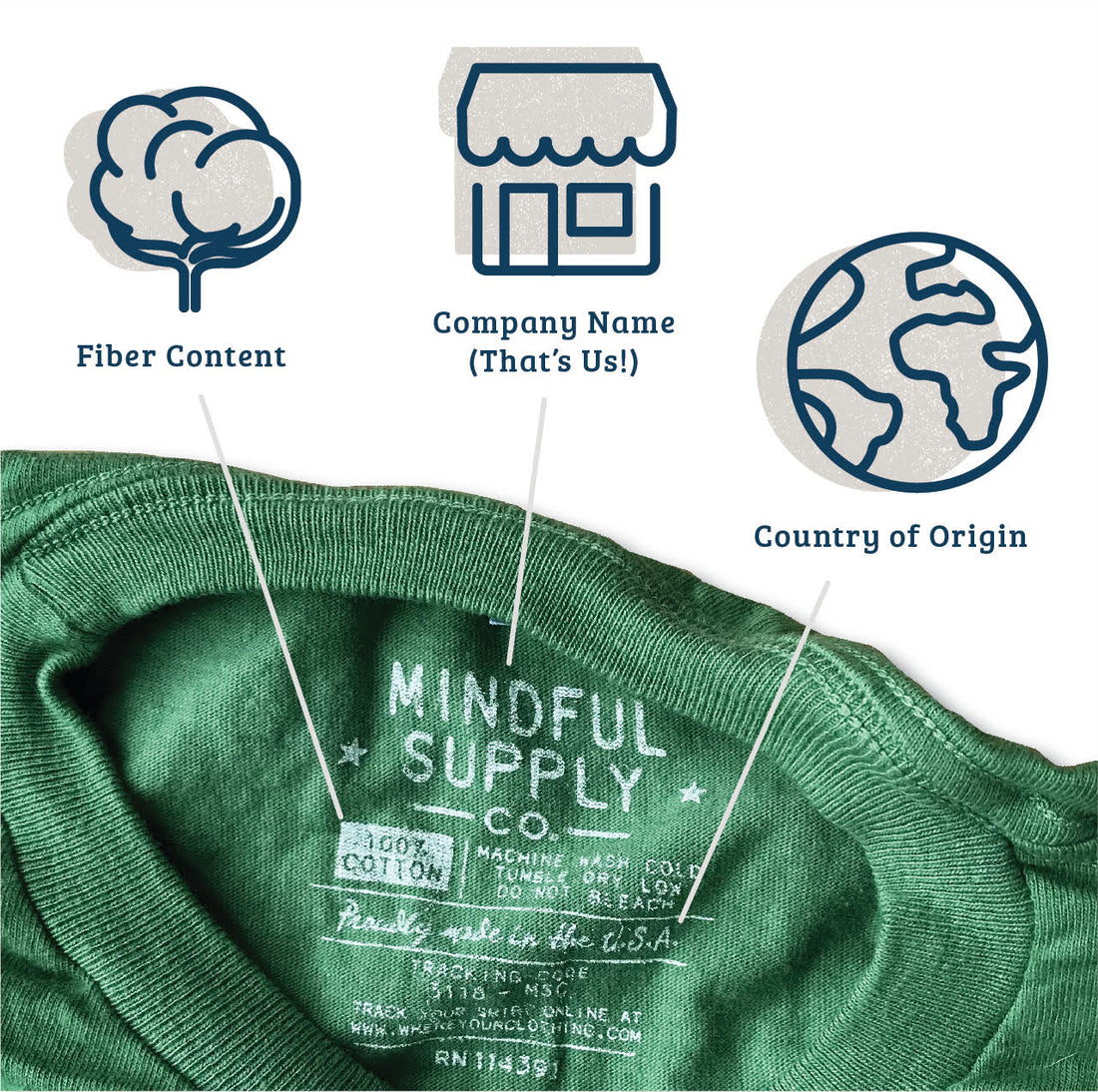
Read Before You Buy- How to read the tags on your fabric products
The Federal Trade Commission requires that all clothing have tags that provide information regarding the makeup of the product (fiber content), the country of origin, the identity of the company making the product and proper care instructions.
What does all of that mean and why should you care? Usually we read the care instructions and decide if it is worth the work. What does the other information mean?
Fiber Content:
(There are tons of fabric blends. We're only going to touch on the few that are most common in t-shirts)
Cotton:
A majority of modern t-shirts are made at least partially from cotton, a natural grown fiber. 100% cotton tees shrink easily when washed in warm water. If 100% cotton is your cup of tea, try to purchase "pre-shrunk" so you get more than one wear before you have to give it to your teenage sister. Organic cotton can be difficult to source in bulk, and inconsistent quality and so often the price point can be a lot higher in exchange for a lesser environmental impact.
Polyester:
Polyesther is a man made, synthetic fiber and although most associate those practices with negative environmental impact, polyester can be made from recycled plastics.
A company called Unifi out of Greensboro, North Carolina is making a thread called Repreve that is made from 100% recycled bottles. Blank manufacturers like Recover are using Repreve to make textile products with little to no environmental impact.
100% polyester shirts are most common in outdoor use for their moisture wicking abilities. Shirts with a percentage of polyester often do not shrink as significantly but can be damaged with high heat.
Rayon:
Rayon is manufactured from cellulose. Typically from wood pulp. This is a common component in what most manufacturers call a "tri-blend" t-shirt. These are currently a very popular, soft, and often pre-shrunk fitted blend.
Country of Origin:
When considering ethically sourced product, your safest bet with apparel is going to be American made. Although the U.S. may not always be perfect, we know as Western Consumers that there are standardized practices from over 100+ years of labor unions and government law-making to protect the american worker.
Thanks to NAFTA, a lot of labor has gone overseas. Sweatshops popping up have lead to those of us in the apparel industry questioning if this could be done better. A group of manufacturers gathered to create a method of certification called, "W.R.A.P." allowing factories who were doing it right to be recognized for their standards.
Laws genuinely protecting the working citizen do not exist in every country and it is important to know a little bit about those laws before just calling something "Ethically Made". "W.R.A.P" certified in Bangladesh doesn't mean the same as "W.R.A.P" certified in Nicaragua. Click Here to learn more about WRAP certifications.
When we thank you for being "mindful" in your package, this is what we mean. Consider your source. Vote with your dollar. Take the extra five seconds during your shopping trip to consider the impact.
